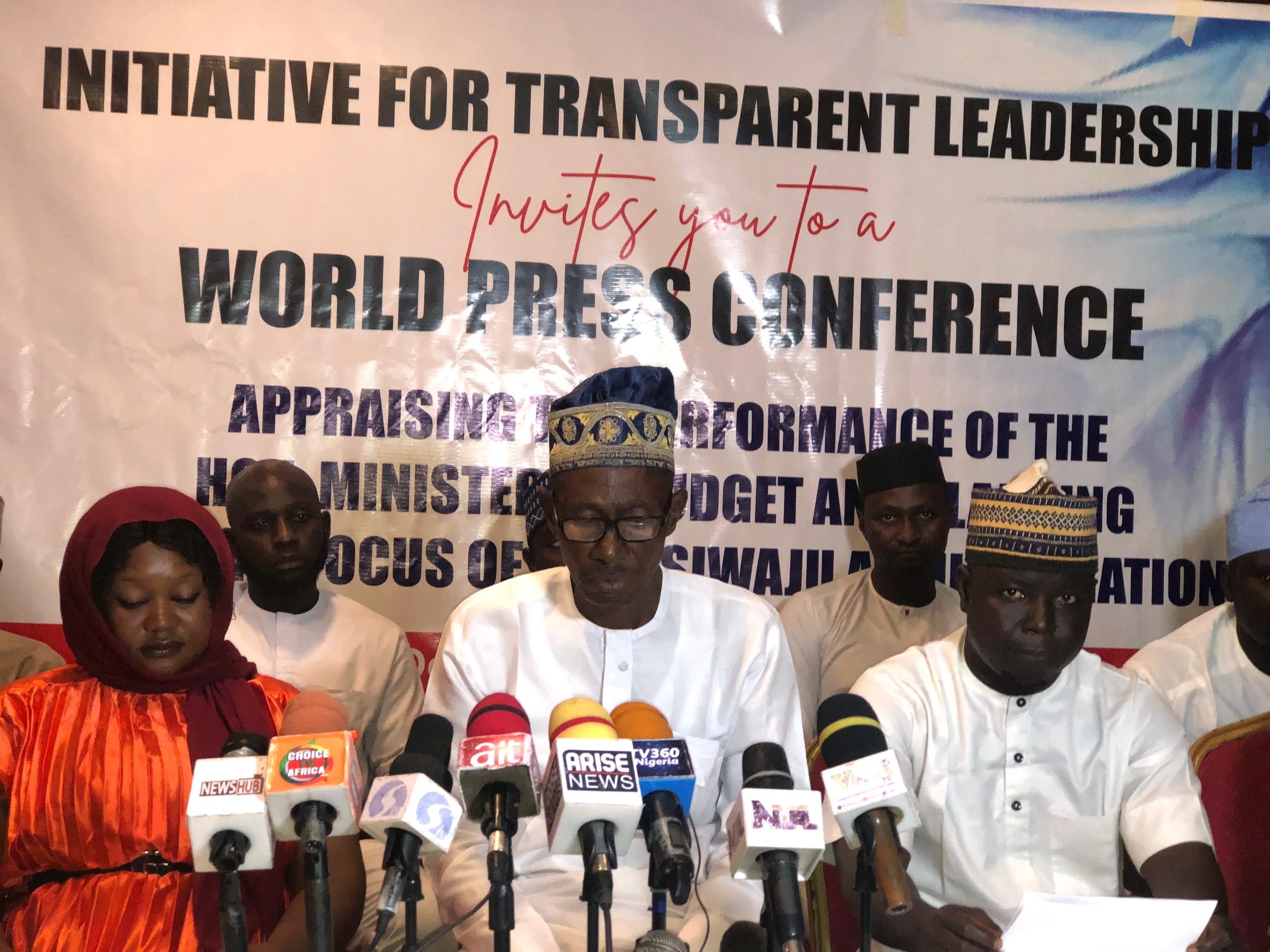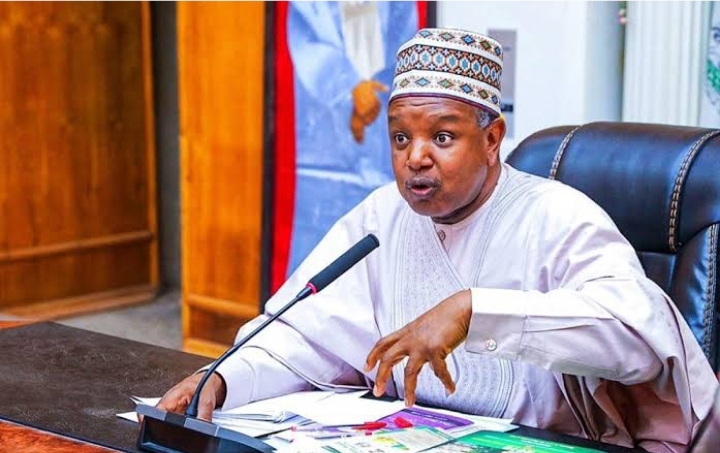The Initiative for Transparent Leadership (ITL) has commended Senator Abubakar Atiku Bagudu, Minister of Budget and Planning, for his outstanding performance in promoting transparency, inclusivity, and sustainable development.
At a press conference, the CSO praised Bagudu’s efforts in ensuring an equal spread of budgetary allocations across Nigeria’s six geo-political zones.
The group said that marks a significant departure from previous administrations where certain regions were favored over others.
In his address, Executive Director, Fabian Opialu said under Senator Bagudu’s leadership, the budget follows an even spread, ensuring that all six geo-political zones benefit from concrete projects that meet tangible realities on the ground.
This level of accountability, he said, is unprecedented and highlights Bagudu’s commitment to transparency in governance.
The CSO also commended the improved allocation of resources and their prioritization.
Opialu lamented that previous administrations struggled with ensuring that key sectors such as education, healthcare, infrastructure, and security received the necessary funding.
However, he noted that Senator Bagudu has worked meticulously to ensure that resources are allocated to projects based on national priorities and needs, rather than political considerations.
Opialu further said that this has led to visible improvements in several key sectors across all regions of the country.
He said Senator Bagudu’s actions have been firmly in support of President Tinubu’s Renewed Hope agenda, which prioritizes the economic integration of marginalized groups, particularly women and individuals with disabilities.
The CSO added that the Minister has played a critical role in ensuring that these groups are not only included but are also empowered to contribute meaningfully to the economy.
He said: “Unlike previous administrations where budget allocations often remained theoretical, under Senator Bagudu’s leadership, there has been a strong focus on implementation and monitoring of projects.
“For the first time in many years, we are witnessing robust systems being put in place to monitor projects and their progress, ensuring that funds allocated to specific regions are utilized for the intended purposes. This level of accountability is unprecedented and highlights the commitment of Senator Bagudu to transparency in governance.
“Furthermore, one of the most remarkable successes of the current administration is the improved allocation of resources and their prioritization. Previous administrations struggled with ensuring that key sectors such as education, healthcare, infrastructure, and security received the necessary funding.
“However, Senator Bagudu has worked meticulously to ensure that resources are allocated to projects based on national priorities and needs, rather than political considerations. This has led to visible improvements in several key sectors across all regions of the country.
“Another significant achievement under Senator Bagudu’s tenure is the periodic review of projects and programs to ensure conformity with the objectives laid out in the national development plan. The ability to adapt and make necessary changes to the implementation process is a sign of great foresight. Regular evaluations have allowed the Ministry to correct course when necessary, ensuring that projects remain aligned with the government’s overall goals of promoting inclusivity and sustainable growth.
“Additionally, Senator Atiku Bagudu’s actions have been firmly in support of President Tinubu’s Renewed Hope agenda, which has inclusivity at its core. This agenda prioritizes the economic integration of marginalized groups, particularly women and individuals with disabilities.
“Senator Bagudu has played a critical role in Ensuring that these groups are not only included but are also empowered to contribute meaningfully to the economy. Unlike in previous administrations where inclusivity was merely a slogan, the current administration, through Senator Bagudu’s efforts, has made tangible progress in integrating these groups into the economic system a realistic endeavor.
“Another key governance issue that Senator Bagudu has helped address is youth unemployment. Nigeria’s youth population is one of the largest in the world, yet successive administrations have struggled to create meaningful opportunities for this demographic even on their meticulous planning, but only touching the surface.
“Senator Bagudu has been a trailblazer in contributing practical strategies for implementing the administration’s youth empowerment policies in her budgeting and planning. Through initiatives such as vocational training, digital skills programs, and entrepreneurial support, young Nigerians are being equipped with the skills they need to thrive in a rapidly changing economy. This is a marked departure from previous administrations, where youth empowerment policies were often poorly implemented or underfunded.
“Evidently, Senator Bagudu’s performance as Minister of Budget and Planning is underpinned by his great foresight. Amidst the noise and complaints surrounding critical economic reforms, such as the removal of fuel subsidies and the deregulation of the foreign exchange market, Senator Bagudu has remained steadfast in his support of these policies.
“He has demonstrated a deep understanding of their long-term benefits for Nigeria’s economy, recognizing that short-term pain is sometimes necessary for long-term gain. His advocacy for these policies has helped to shape public discourse and build support for the administration’s reform agenda.
The CSO recommended areas for improvement, including enhancing public engagement, intensifying monitoring and evaluation mechanisms, and expanding youth empowerment programs.
Opialu emphasized the importance of transparency, accountability, and inclusivity.





